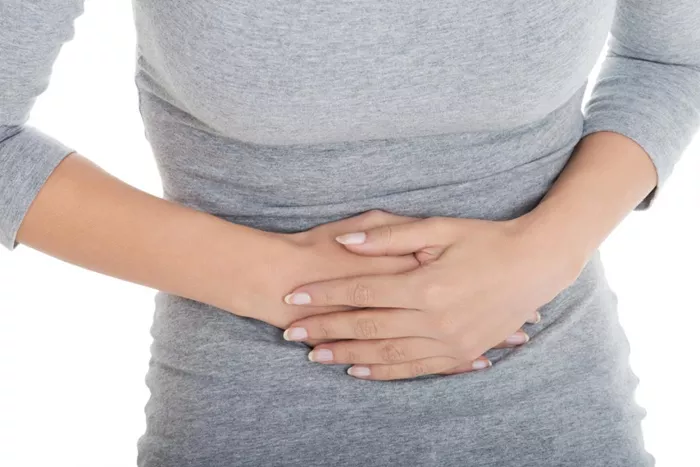Many women wonder if it is still possible to get pregnant naturally after menopause. This question may come up for various reasons—some women feel young and healthy and still wish to have children later in life, while others are simply curious about what their bodies can or cannot do. The short answer is that it is extremely rare to get pregnant naturally after menopause. In this article, we will explain why that is, what menopause means for fertility, and what options might still be available for women who wish to have children after menopause.
What Is Menopause?
Menopause is a natural part of aging for women. It usually happens between the ages of 45 and 55. A woman is considered to be in menopause when she has gone 12 months without a menstrual period. During this time, the ovaries stop releasing eggs, and hormone levels like estrogen and progesterone decrease. This change means that the woman can no longer become pregnant naturally.
Can You Get Pregnant Naturally After Menopause?
The Simple Answer
No, you cannot get pregnant naturally after menopause. Once menopause is complete, the ovaries stop releasing eggs. Without eggs, natural fertilization cannot happen. This makes natural pregnancy biologically impossible.
Why It’s Not Possible
To become pregnant, a woman needs to release an egg during her monthly cycle. This process is called ovulation. After menopause, ovulation stops. Without ovulation, there is no egg for the sperm to fertilize. Hormones like estrogen and progesterone also fall to low levels, which further stops the body from preparing for a pregnancy.
Rare Exceptions Are Not Natural
There are very rare cases of women getting pregnant after 50 or even 60, but these are not natural pregnancies. In almost all of these cases, women use medical help like donor eggs and hormone therapy to carry a baby. These pregnancies are made possible through special fertility treatments and are not the result of natural ovulation.
Can You Get Pregnant During Perimenopause?
What Is Perimenopause?
Perimenopause is the time before menopause. It can last for several years. During this time, periods may become irregular, and hormone levels start to change. Women may still ovulate during perimenopause, although not every month.
Is Pregnancy Still Possible?
Yes, it is still possible to get pregnant during perimenopause, although it becomes harder. Since ovulation is unpredictable, women can still release eggs occasionally. If a woman has unprotected sex during one of these times, pregnancy can happen. However, the chances are lower than in younger women.
How Is Pregnancy After Menopause Possible With Medical Help?
Assisted Reproductive Technologies (ART)
Some women who go through menopause still want to have children. While natural pregnancy is no longer an option, medical science can help. Fertility clinics use a process called In Vitro Fertilization (IVF). In this method, a donor egg is fertilized with sperm and placed into the woman’s uterus. With hormone treatments, the uterus can be made ready to carry the pregnancy.
Donor Eggs and Hormone Therapy
Since the woman no longer has viable eggs, she must use an egg from a younger donor. Hormone therapy is used to prepare the body for pregnancy. The success rate depends on the woman’s overall health, age, and the quality of the donor egg.
Health Risks of Pregnancy Later in Life
Risks for the Mother
Pregnancy after menopause, even with medical help, carries more risks. Older women are more likely to have high blood pressure, diabetes, or heart problems during pregnancy. These risks increase with age and can make the pregnancy more dangerous.
Risks for the Baby
Babies born to older mothers have a higher chance of being born early or having low birth weight. There is also a slightly higher chance of birth defects. These risks are usually managed with careful medical care, but they are important to consider.
Is It Safe to Try Pregnancy After Menopause?
It depends. If a woman is healthy and passes medical tests, doctors may approve fertility treatments. However, every case is different. Doctors usually suggest having children earlier in life if possible. If a woman is serious about getting pregnant after menopause, she should talk to a fertility expert and a general doctor to understand the risks and options.
Emotional and Lifestyle Factors
Getting pregnant and raising a child later in life brings emotional and practical challenges. Parents may face more physical fatigue and health issues. They may also be older than most other parents in their child’s peer group. Planning for the child’s future and support is very important.
Natural Alternatives for Parenthood After Menopause
Adoption
Many women and couples consider adoption as a way to become parents. Adoption can be a loving and fulfilling choice and does not require any fertility treatments.
Surrogacy
Some women may choose to use a surrogate, where another woman carries the baby. This method also involves medical planning and often uses the intended parents’ or donor eggs and sperm.
Conclusion
Natural pregnancy after menopause is not possible because a woman no longer ovulates or produces the necessary hormones. However, medical treatments such as IVF with donor eggs can still offer a chance to carry a pregnancy after menopause. These methods are not without risk and require careful medical and personal consideration. For women who wish to become mothers later in life, it is essential to explore all options and consult with healthcare professionals.
Related topics:
- What’s the Best Herbs for Menopause?
- How Long After Menopause Can You Get Pregnant?
- What Are the Chances of Getting Pregnant After Menopause?


